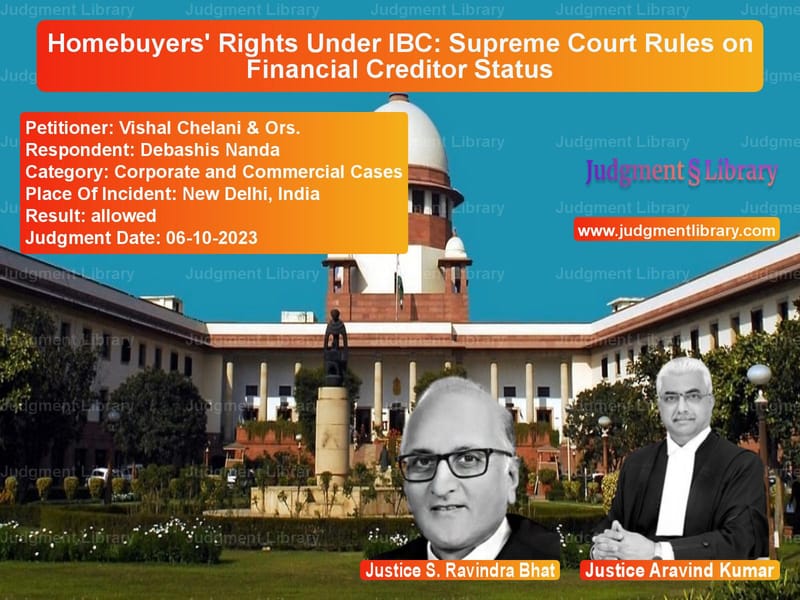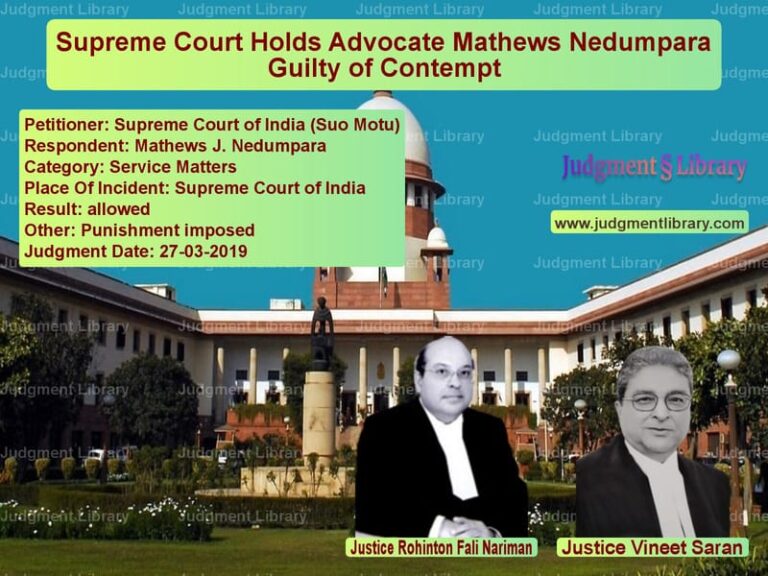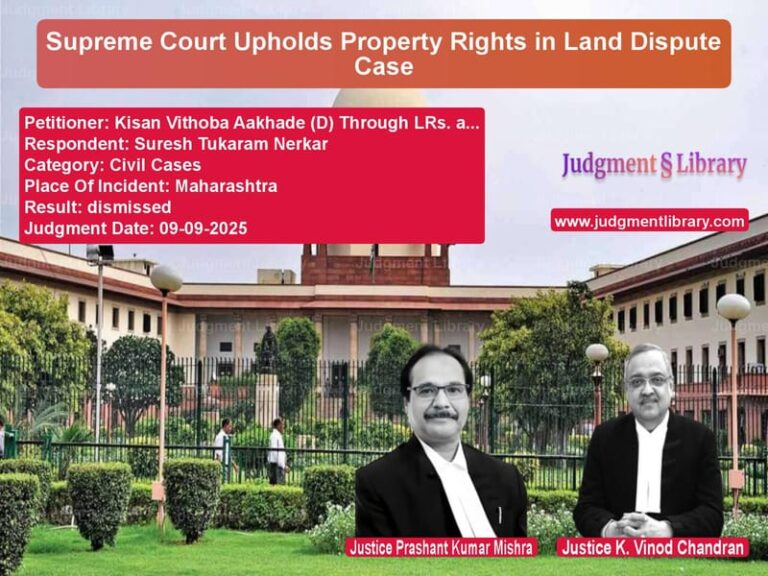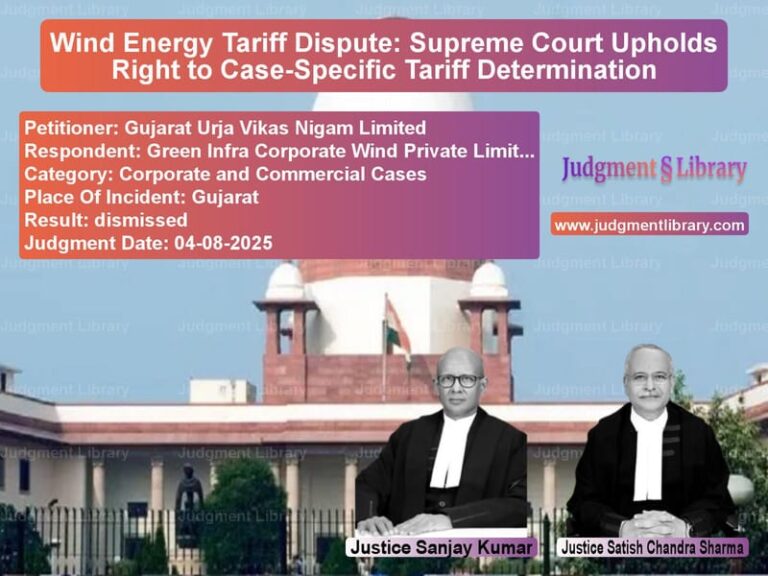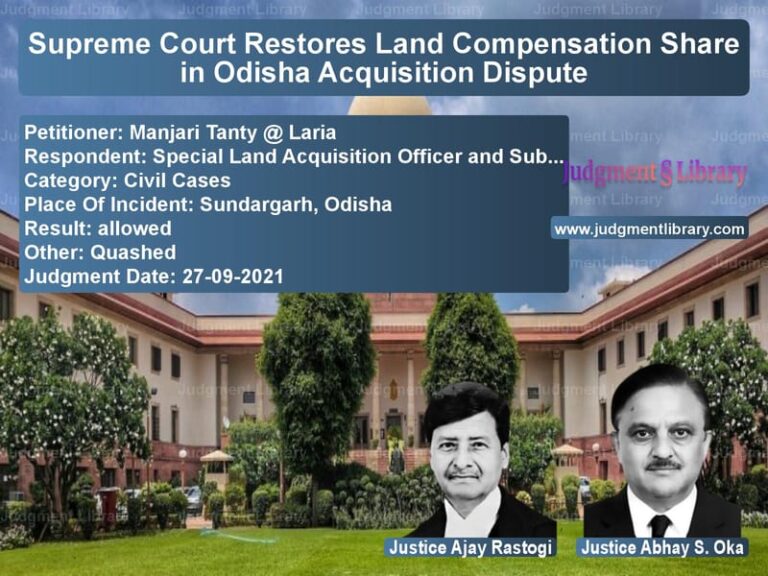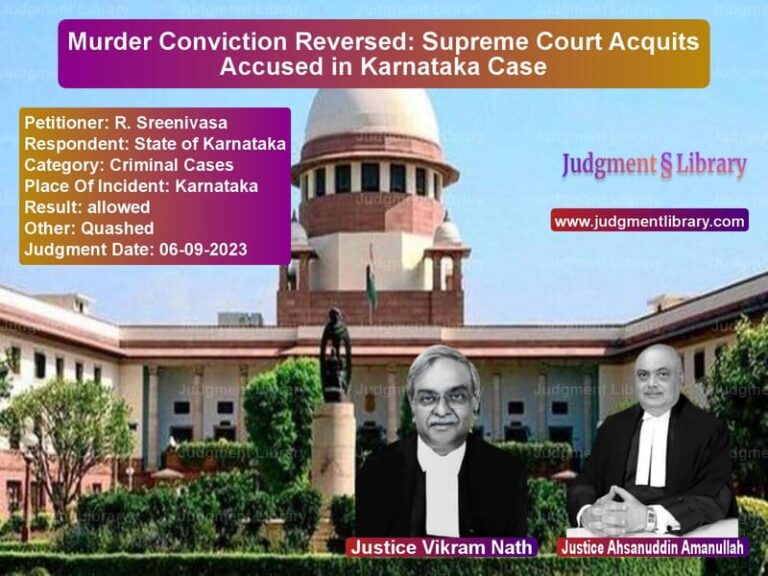Homebuyers’ Rights Under IBC: Supreme Court Rules on Financial Creditor Status
The Supreme Court of India recently delivered a crucial ruling in the case of Vishal Chelani & Ors. v. Debashis Nanda, which clarified the legal status of homebuyers who have obtained refund orders from real estate regulatory authorities under the Insolvency and Bankruptcy Code, 2016 (IBC). This judgment addresses the question of whether such homebuyers should be treated differently from other homebuyers in the resolution process of a bankrupt real estate company.
Background of the Case
The appellants in this case were homebuyers who had invested in a real estate project by Bulland Buildtech Pvt. Ltd.. Due to delays in project completion, they approached the Uttar Pradesh Real Estate Regulatory Authority (UPRERA) and obtained orders entitling them to refunds along with interest. However, in the meantime, insolvency proceedings were initiated against the real estate developer under the IBC.
The resolution professional (RP) appointed in the insolvency process classified homebuyers into two categories:
- Homebuyers who had not approached RERA for refunds were treated as financial creditors and given priority in the resolution process.
- Homebuyers who had secured RERA orders were treated as decree-holders and given less favorable terms in the resolution plan.
The appellants challenged this classification before the National Company Law Tribunal (NCLT), but their plea was rejected. They then approached the National Company Law Appellate Tribunal (NCLAT), which also upheld the decision of the resolution professional. Dissatisfied with the outcome, they appealed to the Supreme Court.
Legal Issues Raised
- Whether homebuyers who have secured RERA refund orders should be treated differently from other homebuyers under IBC.
- Whether obtaining a decree from RERA alters the fundamental nature of the homebuyers’ claims.
- Whether the resolution professional’s classification violates the principles of equality under Article 14 of the Constitution.
- Whether the IBC provisions override RERA when dealing with insolvency proceedings of a real estate developer.
Arguments by the Appellants (Homebuyers)
- The appellants argued that all homebuyers should be treated equally under the IBC, regardless of whether they sought relief from RERA.
- They contended that RERA orders merely confirmed their entitlement to refunds but did not change the fundamental nature of their claims as financial creditors.
- They relied on a decision by the NCLT Mumbai Bench in Natwar Agrawal (HUF) v. Ssakash Developers & Builders Pvt. Ltd., which held that a RERA decree does not alter the status of a homebuyer as a financial creditor.
- The classification made by the resolution professional amounted to unconstitutional discrimination under Article 14.
Arguments by the Respondent (Resolution Professional)
- The resolution professional defended the classification, arguing that homebuyers who had sought RERA refunds had opted for a different remedy and should be treated separately.
- It was contended that these homebuyers had relinquished their rights under Section 18 of the RERA Act, which allows them to claim possession instead of a refund.
- The classification was justified on practical grounds, as it ensured that those who had not sought refunds were given priority.
Supreme Court’s Observations
The Supreme Court made several important observations:
- The IBC, through its 2018 amendment, expressly recognized homebuyers as financial creditors under Section 5(8)(f).
- The IBC does not distinguish between homebuyers based on whether they have obtained a RERA decree.
- Granting different treatment to homebuyers who have obtained RERA orders violates Article 14 of the Constitution.
- A homebuyer remains a financial creditor even after securing a RERA decree, as the decree merely crystallizes the financial debt.
- Section 238 of the IBC, which contains a non-obstante clause, gives it overriding effect over RERA, meaning that RERA orders do not take precedence over IBC proceedings.
Referring to the NCLT Mumbai’s decision in Natwar Agrawal (HUF), the Supreme Court stated:
“An allottee in a real estate project, who subsequently becomes a decree holder under RERA, continues to be a creditor in the class of homebuyers and shall continue to be governed by the threshold limit prescribed under the IBC.”
Final Judgment
The Supreme Court allowed the appeal and ruled that:
- Homebuyers who have obtained RERA decrees must be treated equally with other homebuyers under the IBC.
- The classification made by the resolution professional was arbitrary and violated constitutional principles.
- The appellants are declared financial creditors under IBC and must be treated as such in the resolution process.
- The resolution plan pending before the adjudicating authority must treat all homebuyers equally.
Implications of the Judgment
The ruling has far-reaching consequences for homebuyers and real estate insolvency cases:
- Protects homebuyers’ rights – Ensures that all homebuyers are treated equally in insolvency proceedings.
- Clarifies the status of RERA decrees – Confirms that a refund order from RERA does not change the fundamental nature of a homebuyer’s claim.
- Strengthens IBC’s supremacy – Establishes that IBC proceedings take precedence over RERA orders.
- Prevents arbitrary classifications – Ensures that resolution professionals do not create artificial distinctions among creditors.
The Supreme Court’s decision provides much-needed clarity and protection to homebuyers, ensuring that they are not unfairly discriminated against in the insolvency process.
Petitioner Name: Vishal Chelani & Ors..Respondent Name: Debashis Nanda.Judgment By: Justice S. Ravindra Bhat, Justice Aravind Kumar.Place Of Incident: New Delhi, India.Judgment Date: 06-10-2023.
Don’t miss out on the full details! Download the complete judgment in PDF format below and gain valuable insights instantly!
Download Judgment: vishal-chelani-&-ors-vs-debashis-nanda-supreme-court-of-india-judgment-dated-06-10-2023.pdf
Directly Download Judgment: Directly download this Judgment
See all petitions in Bankruptcy and Insolvency
See all petitions in Company Law
See all petitions in Corporate Compliance
See all petitions in Judgment by S Ravindra Bhat
See all petitions in Judgment by Aravind Kumar
See all petitions in allowed
See all petitions in supreme court of India judgments October 2023
See all petitions in 2023 judgments
See all posts in Corporate and Commercial Cases Category
See all allowed petitions in Corporate and Commercial Cases Category
See all Dismissed petitions in Corporate and Commercial Cases Category
See all partially allowed petitions in Corporate and Commercial Cases Category

